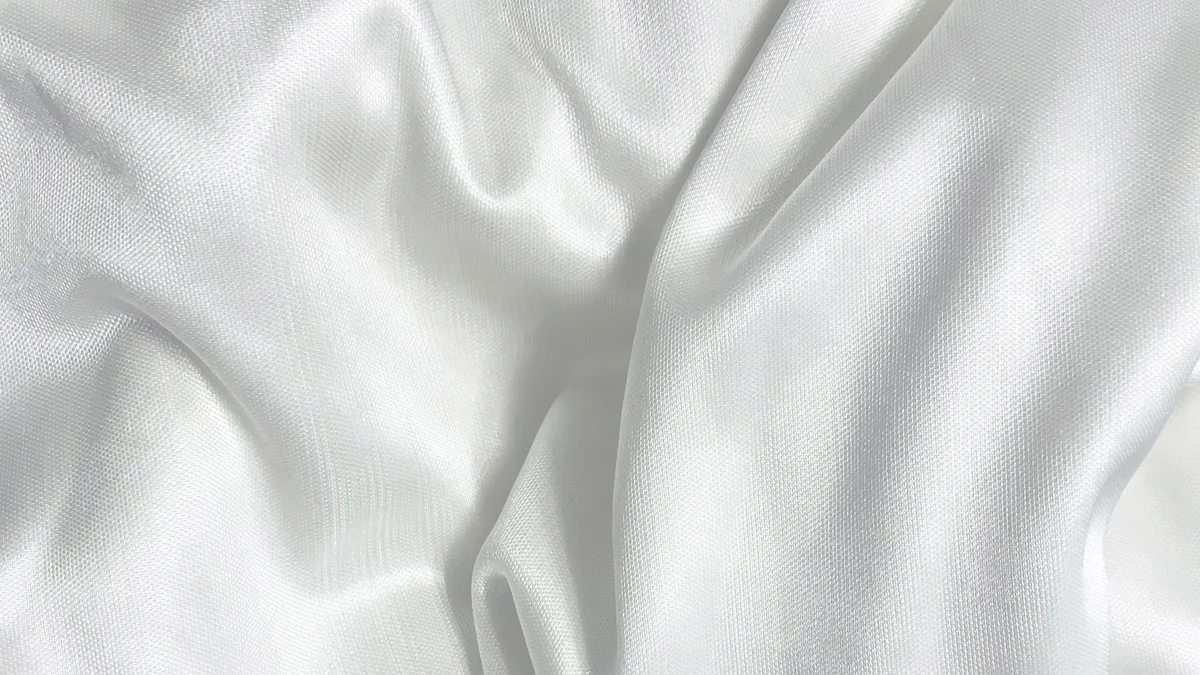
Choosing the right type of socks significantly impacts foot health and comfort. Many people experience discomfort due to poor-quality socks. The growing interest in organic products and sustainability has led many to explore options like women’s cotton socks ankle made from organic materials. This blog aims to compare organic and regular cotton ankle socks for women, helping readers make informed decisions.
Understanding the Basics
What Are Organic Cotton Ankle Socks?
Definition and Characteristics
Organic cotton ankle socks are crafted from cotton grown without synthetic pesticides, fertilizers, or genetically modified organisms (GMOs). These socks are hypoallergenic and free from harmful chemicals. The Global Organic Textile Standards (GOTS) certify these socks as “Organic.” This certification ensures that the production process adheres to strict environmental and social criteria. Women’s cotton socks ankle made from organic cotton are known for their softness, durability, and comfort.
Production Process
The production of organic cotton ankle socks involves sustainable farming practices. Farmers use natural methods to control pests and weeds, such as crop rotation, biological pest control, and manual weed removal. These practices reduce soil erosion and lower CO2 emissions. The absence of chemical pesticides and fertilizers makes organic cotton safer for farmers, workers, and consumers. The entire process emphasizes sustainability and environmental responsibility.
What Are Regular Cotton Ankle Socks?
Definition and Characteristics
Regular cotton ankle socks are made from conventionally grown cotton. This type of cotton often involves the use of synthetic pesticides, fertilizers, and GMOs. Regular cotton socks may not have the same hypoallergenic properties as organic cotton socks. The quality and comfort of regular cotton socks can vary depending on the manufacturing process and the presence of any chemical residues.
Production Process
The production of regular cotton ankle socks typically involves conventional farming methods. These methods rely heavily on synthetic chemicals to control pests and enhance growth. The use of chemical pesticides and fertilizers can lead to soil degradation and increased CO2 emissions. The production process may not prioritize environmental sustainability or the health and safety of farmers and workers.
Material Quality and Comfort

Softness and Feel
Organic Cotton
Women’s cotton socks ankle made from organic cotton offer exceptional softness. The absence of harsh chemicals in the growing and manufacturing processes enhances the natural softness of the fibers. Organic cotton retains its natural oils, contributing to a smoother texture. Many users report that organic cotton socks feel more comfortable against the skin. This quality makes them ideal for those with sensitive skin or allergies.
Organic cotton socks also maintain their softness after multiple washes. The durability of the fibers ensures that the socks remain soft over time. The Global Organic Textile Standards (GOTS) certification guarantees that the production process adheres to strict environmental and social criteria. This certification further assures consumers of the high quality and comfort of women’s cotton socks ankle made from organic cotton.
Regular Cotton
Regular cotton socks may not offer the same level of softness as organic cotton socks. The use of synthetic pesticides and fertilizers can affect the quality of the fibers. Regular cotton often undergoes chemical treatments during processing, which can make the fabric feel rougher. The presence of chemical residues may also cause skin irritation for some individuals.
The softness of regular cotton socks can vary based on the manufacturing process. Some brands may use additional treatments to enhance the feel of the fabric. However, these treatments do not always guarantee long-lasting softness. Regular cotton socks may lose their softness after repeated washing, leading to a less comfortable experience over time.
Durability and Longevity
Organic Cotton
Women’s cotton socks ankle made from organic cotton are known for their durability. The natural strength of organic cotton fibers contributes to the longevity of the socks. The absence of harsh chemicals during production helps preserve the integrity of the fibers. This results in socks that can withstand regular wear and washing without losing their shape or comfort.
Organic cotton socks also exhibit excellent resistance to wear and tear. The sustainable farming practices used in growing organic cotton ensure healthier and stronger plants. This translates to higher-quality fibers that produce more durable socks. Consumers often find that investing in organic cotton socks pays off in the long run due to their extended lifespan.
Regular Cotton
Regular cotton socks may not offer the same level of durability as organic cotton socks. The use of synthetic chemicals in conventional farming can weaken the fibers. Regular cotton socks may be more prone to wear and tear, especially after multiple washes. The chemical treatments used during processing can also affect the longevity of the fabric.
The durability of regular cotton socks depends on the quality of the cotton and the manufacturing process. Some brands may produce more durable socks by using higher-quality cotton or additional treatments. However, these factors do not always guarantee long-lasting performance. Regular cotton socks may need to be replaced more frequently, leading to higher long-term costs.
Health Benefits
Skin Sensitivity and Allergies
Organic Cotton
Women’s cotton socks ankle made from organic cotton offer significant benefits for skin sensitivity and allergies. Organic cotton does not contain synthetic pesticides or toxic dyes. This absence of harsh chemicals reduces the risk of skin irritations and allergic reactions. Many dermatologists recommend organic cotton for individuals with sensitive skin or eczema. The hypoallergenic properties of organic cotton make it a safer choice for those prone to allergies.
Regular Cotton
Regular cotton socks may not provide the same level of protection against skin irritations and allergies. Conventional cotton often involves the use of synthetic pesticides and fertilizers. These chemicals can leave residues on the fibers, potentially causing skin reactions. Individuals with sensitive skin may experience discomfort or rashes when wearing regular cotton socks. The lack of hypoallergenic properties in regular cotton makes it less suitable for those with skin sensitivities.
Breathability and Moisture-Wicking
Organic Cotton
Women’s cotton socks ankle made from organic cotton excel in breathability and moisture-wicking capabilities. The natural fibers allow air to circulate, keeping feet cool and dry. Organic cotton’s superior moisture absorption helps prevent the buildup of sweat, reducing the risk of bacterial growth and unpleasant odors. Studies have shown that high-quality natural fibers like cotton offer excellent moisture management. This quality makes organic cotton an ideal choice for maintaining foot health.
Regular Cotton
Regular cotton socks may not match the breathability and moisture-wicking performance of organic cotton socks. The presence of synthetic chemicals can affect the natural properties of the fibers. Regular cotton may not absorb moisture as effectively, leading to dampness and discomfort. The reduced breathability can create a warm environment, promoting bacterial growth and odor. The variability in manufacturing processes means that not all regular cotton socks perform equally well in moisture management.
Environmental Impact

Farming Practices
Organic Cotton
Organic cotton farming prioritizes ecosystem health and sustainability. Farmers use natural methods to control pests and weeds, such as crop rotation and biological pest control. These practices promote biodiversity and soil health. Organic cotton farming also conserves water by using efficient irrigation techniques. The absence of synthetic pesticides and fertilizers reduces the risk of water contamination and soil degradation.
Organic cotton farming emphasizes regenerative practices. Farmers employ organic fertilizers that enrich the soil without harming the environment. This approach reduces greenhouse gas emissions and lowers carbon footprints. Organic cotton production supports ethical employment practices by ensuring safer working conditions for farmers and workers.
Regular Cotton
Regular cotton farming relies heavily on synthetic chemicals. Farmers use toxic pesticides and fertilizers to enhance growth and control pests. These chemicals can have detrimental effects on the environment. Regular cotton farming often involves genetically modified seeds, which can impact biodiversity negatively.
Conventional cotton farming can be water-intensive. The excessive use of water depletes local water resources and affects surrounding ecosystems. The use of synthetic chemicals in regular cotton farming contributes to soil degradation and reduces soil quality over time. This farming method does not prioritize environmental sustainability or the health of farmers and workers.
Chemical Usage
Organic Cotton
Organic cotton production avoids harmful chemicals. Farmers do not use synthetic pesticides, fertilizers, or toxic dyes. This absence of harsh chemicals makes organic cotton safer for the environment and consumers. The Global Organic Textile Standards (GOTS) certification ensures that organic cotton adheres to strict environmental criteria.
Organic cotton production reduces chemical usage significantly. The natural farming methods employed in organic cotton cultivation minimize the risk of chemical runoff into water bodies. This practice helps maintain cleaner water sources and healthier ecosystems. Organic cotton’s chemical-free production process also benefits farmers by providing a safer working environment.
Regular Cotton
Regular cotton production involves extensive chemical usage. Farmers use synthetic pesticides and fertilizers to increase yield and control pests. These chemicals can leave residues on the cotton fibers, potentially causing harm to consumers. The use of toxic dyes in regular cotton production can also contribute to environmental pollution.
The heavy reliance on synthetic chemicals in regular cotton farming has several negative impacts. Chemical runoff from farms can contaminate local water sources, affecting aquatic life and human health. The use of synthetic fertilizers can lead to soil degradation and reduced soil fertility over time. Regular cotton production does not prioritize reducing chemical usage or promoting environmental sustainability.
Cost and Accessibility
Price Comparison
Organic Cotton
Organic cotton ankle socks often come with a higher price tag. The cost reflects the sustainable farming practices and eco-friendly production techniques. Organic cotton uses no chemical pesticides or fertilizers, which increases labor and resource requirements. The investment in organic cotton socks supports sustainable agriculture and environmental advocacy. Many consumers find the higher price justified by the superior quality and durability of organic cotton.
Regular Cotton
Regular cotton ankle socks usually have a lower price point. Conventional farming methods and the use of synthetic chemicals reduce production costs. Regular cotton relies on GMO seeds and requires more water and pesticides. These factors contribute to a lower retail price. However, the reduced cost may come at the expense of quality and longevity. Consumers may need to replace regular cotton socks more frequently, leading to higher long-term costs.
Availability in the Market
Organic Cotton
Organic cotton ankle socks have become increasingly available in recent years. The growing interest in sustainability and eco-friendly products has expanded the market for organic cotton. Many brands now offer a variety of styles and sizes. Specialty stores and online retailers often carry extensive selections of organic cotton socks. The availability of certified organic products ensures that consumers can make environmentally responsible choices.
Regular Cotton
Regular cotton ankle socks remain widely available and easily accessible. Most retail stores and online platforms stock a vast range of regular cotton socks. The widespread use of conventional farming methods ensures a steady supply. Regular cotton socks come in numerous styles, colors, and price points. The accessibility and affordability of regular cotton make it a popular choice for many consumers.
The blog has highlighted key differences between organic and regular cotton ankle socks. Organic cotton offers superior softness, durability, and hypoallergenic properties. Regular cotton provides affordability and widespread availability.
- Organic Cotton Socks:
- Hypoallergenic and free from harmful chemicals.
- Superior softness and durability.
- Environmentally friendly production methods.
- Regular Cotton Socks:
- More affordable.
- Widely available in various styles and colors.
When choosing between the two, consider personal priorities such as comfort, health, and environmental impact. Each type of sock serves different needs and preferences, making informed decisions crucial for optimal foot health and comfort.

